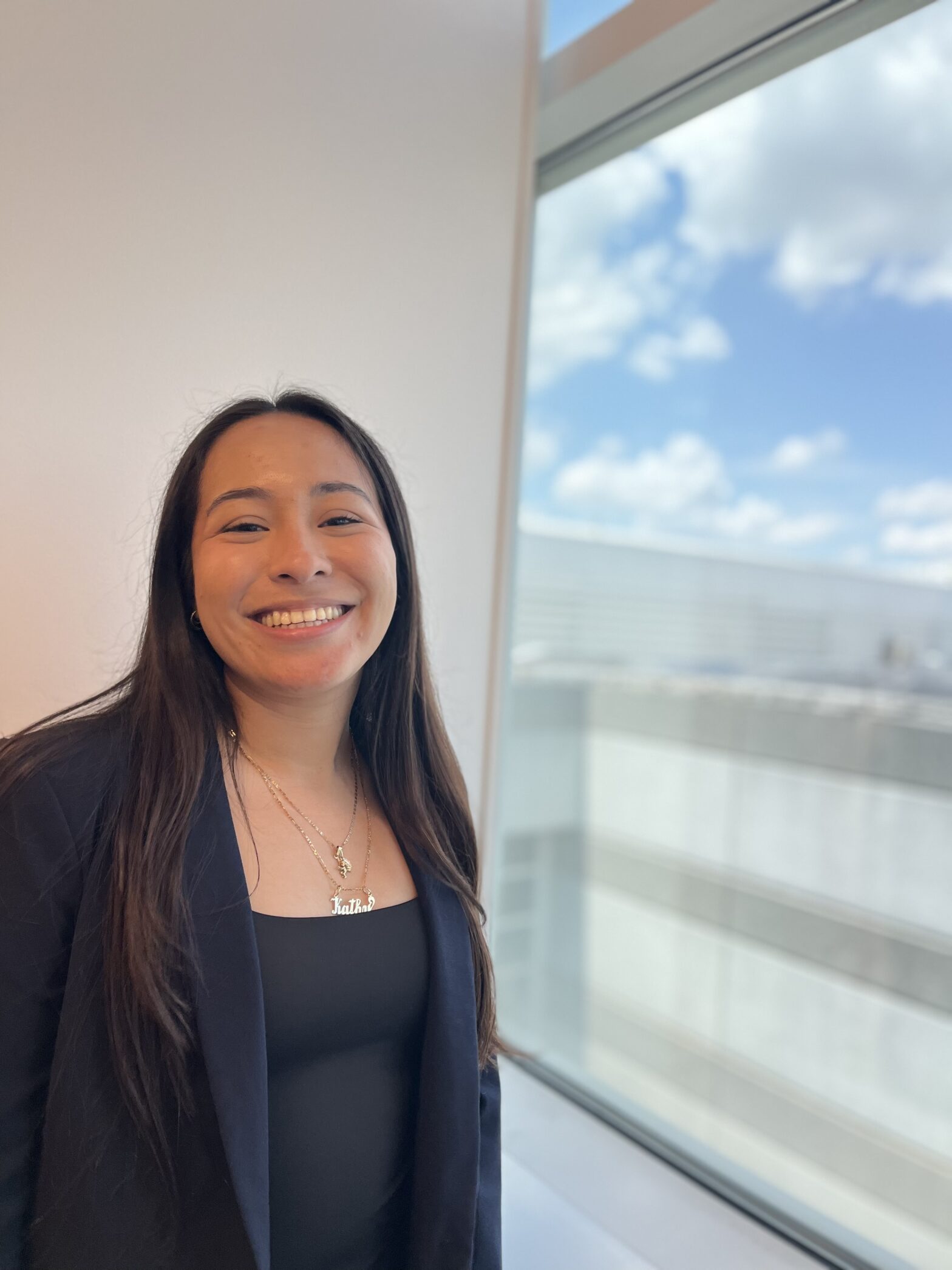This Q&A highlight features Katherine Quintanilla, an Honorable Mention in the 2024 CRA Outstanding Undergraduate Researchers award program. Katherine is an undergraduate at Tufts University, with a double major in Computer Science and Child Study & Human Development.
Keywords: Security, Privacy, Education
What brought you to research?
I am a first-generation college student from a low-income background, so I am the first in my family to go to college, which was really daunting. I did not know about research until I got to college. A lot of my peers were talking about their research experience, and I was worried I was behind. I also needed to find a summer job, so I started looking for research positions. I applied to a program at my university called Visiting and Early Research Scholars’ Experiences (VERSE), which places students who have not done research before into summer research positions. I met my undergraduate research supervisor, Daniel Votipka, during the interviews for VERSE. He has been really dedicated to learning about my background and giving me the support I need.
Can you tell us about your research?
My first project was about the security and privacy concerns of FERPA, which is a law to protect the privacy of student education records in the US. I had to call the registrar for multiple universities to get information about how they implement FERPA. Together with Sarah Radway, a PhD student from my lab, we published a paper on this project at CHI in 2024. My current research interests lie in security and privacy education for low-income areas. In this context, it is common for parents not to have the time or familiarity to teach their children how to be safe on the internet. I am currently working on a paper about how to better support educators in teaching security and privacy to low-income students.
Can you tell us more about your experience doing qualitative CS research?
When I tell people I am a CS researcher, they often assume I am creating a new programming language or something like that. When I explain what I actually do, I find they have a lot of preconceived ideas about what CS research is. I think sometimes people forget to ask about the repercussions of pushing CS as far as it can go. At the end of the day, people are going to interact with these new technologies, so we need to know how they are going to impact us. If we are not thinking about the people that our work affects, I do not think there is a point in continuing to go further in CS research.
What do you find challenging and what do you like about research?
One challenge has been learning how the academic research environment works. For example, I attended a conference talk that was related to my research, and I had a lot of questions for the speaker. I talked to my supervisor about it and I was surprised when he told me I could email the speaker directly to talk about her work. Learning where to look and who to talk to has been challenging. What I like about research is that it is not black and white. There is no specific answer to which ideas you should pursue. When I have a topic I am interested in, it feels like I want to keep getting deeper and deeper, and to learn as much as I can. Then, once I have gathered all this data, I ask myself how I can use it to help others. In that way, I think research is an opportunity to do good in the world.
How do you stay motivated?
My motivation has always been to give back to my family. My parents immigrated from Mexico and El Salvador to have a better life. They have done so much for me, so I want to be there for them. My mom always taught me to be grateful for everything, so even when I am stressed, I think about how grateful I am for these opportunities and it encourages me to keep going. I make sure to stay connected with my family. I also take the time for hobbies like baking and reading.
Do you have any advice for other students from a similar background looking to get into research?
Ask a lot of questions, even though it is scary and you might not want to do it. When you are from a low-income background, you might be used to doing things on your own, but you have to realize that asking questions and finding a support system will let you achieve so much more. It can be discouraging to know you are underrepresented in computing, but by being here, you open the door for others to follow in your footsteps. When I speak to students, especially other Latinx students, I always share my background, because I want to let them know it is possible for us to excel in this field.
— Edited by Alejandro Velasco and Emma McDonald

I am so proud of u and I hope u are too 🙏🥳! Tu amo ♥️